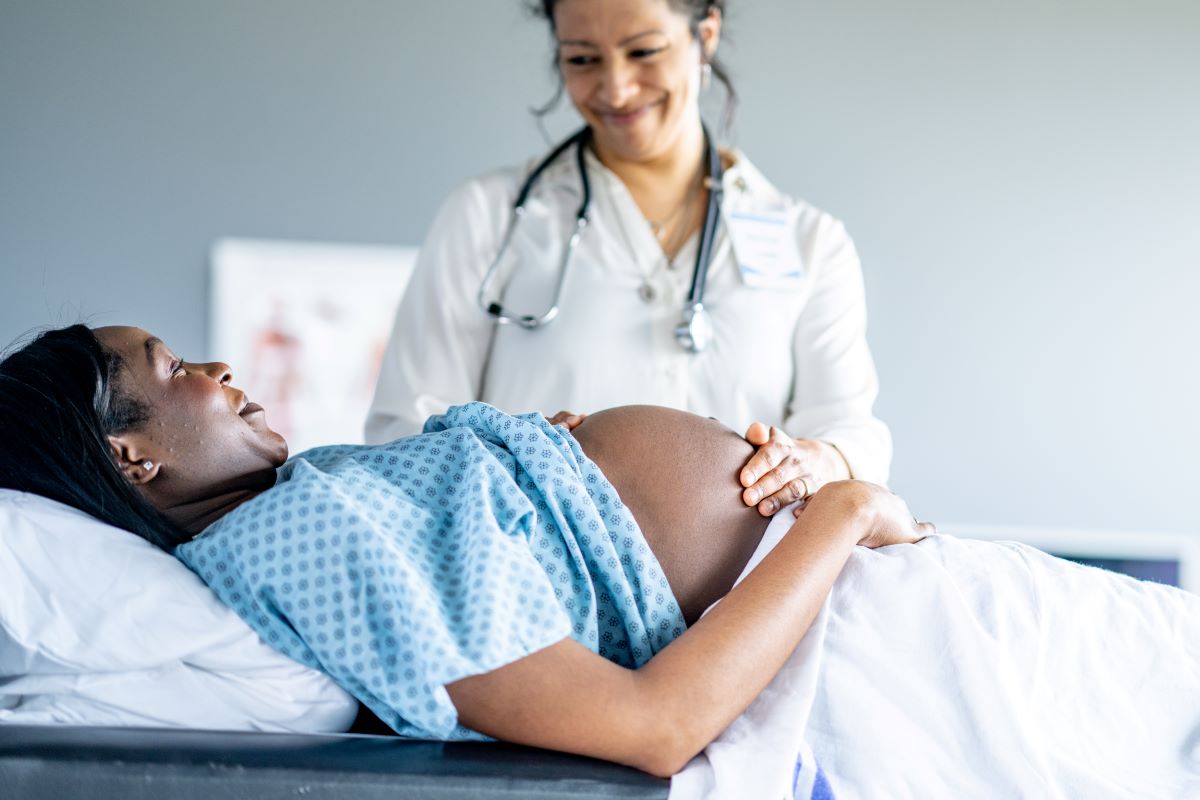
Project M.O.M. (Maternal Overdose Mortality)
Purpose: To keep women alive and families intact.
Problem
Accidental opioid overdose has been the leading cause of pregnancy‑associated death in Louisiana since 2018.
Every preventable death is a tragedy, but the death of a pregnant woman or young mom doubles the tragedy, as the loss of the mother endangers her child.
Anticipated Outcome
Through Project M.O.M., LDH aims to reduce pregnancy‑associated opioid overdose deaths by 80% within three years and protect infants from loss or foster care placement.
Early identification and treatment of substance use disorder in pregnant women improve maternal and infant health outcomes.
What is Project M.O.M.?
Project M.O.M. is a coordinated, navigation-centered initiative that supports pregnant and postpartum women with substance use disorder by facilitating access to clinical and behavioral health care and evidence-based treatment, while also ensuring enrollment support, coordination of maternal support services, and connection to social drivers of health (SDOH) resources across pregnancy and the postpartum period.
Key Components
- Align leadership and staff around a culture shift that treats substance use disorder in pregnancy as a medical condition and reduces stigma.
- Implement universal verbal screening for substance use and standardized clinical pathways and training that support evidence-based care during pregnancy and postpartum
- Ensure timely initiation, uninterrupted continuation, and coordinated transitions of MOUD across care settings.
- Integrate naloxone distribution and education into routine clinical workflows
- Embed hospital-based Perinatal Navigators to bridge prenatal, hospital, postpartum, and regional care coordination.
- Utilize a secure Project M.O.M. data-sharing system to support care coordination, monitoring, and continuous quality improvement.
Catalyst Site Hospitals
Project M.O.M. catalyst site hospitals will represent multiple regions across the state and serve as early adopters—working closely with LDH to implement core Project M.O.M. components, strengthen care coordination, and expand access to evidence-based, stigma-free services for Pregnant and Postpartum Women with Substance Use Disorder (PPW with SUD).
Catalyst sites are selected based on demonstrated leadership and readiness, including engagement with the Louisiana Perinatal Quality Collaborative (LaPQC), collaboration with medication for opioid use disorder (MOUD) providers, and/or implementation of navigator models. This foundation positions catalyst sites to accelerate implementation, generate actionable insights, and serve as regional leaders in maternal substance use care.
Project M.O.M. & LaPQC Alignment
Project M.O.M. aligns with the Louisiana Perinatal Quality Collaborative (LaPQC) to strengthen continuity of care before, during, and after the birth hospitalization. Through LaPQC, hospitals receive training, resources, and technical assistance to embed evidence-based practices into routine care. Project M.O.M. builds on this foundation by identifying and engaging mothers as early as possible in the prenatal period and ensuring continued connection to care following hospital discharge through personalized navigation and coordinated follow-up across prenatal, postpartum, and substance use treatment settings.
- LaPQC: Maternal Health and SUD Videos
- LaPQC: Safe Births Initiative
- Provider-to-Provider Consultation Line (PPCL): Pediatric and Perinatal Mental Health Support for Providers
- Louisiana Bridge Program
- The Naloxone Project
- LSU Rural Family Medicine Program
- The ALLY Initiative
- Guiding Recovery and Creating Empowerment (GRACE) Program
- Women’s Health Resources
- Louisiana Opioid Data and Surveillance System
- Maternal and Child Health Data Indicators
- LDH Harm Reduction Distribution Hub
- Louisiana 988 Helpline
- Partners for Family Health
- LDH Bureau of Regional & Clinical Operations
- LDH Statewide Service Locations
- Louisiana Perinatal Quality Collaborative (LaPQC)
- ACOG Opioid Use Disorder and Pregnancy
 Official Louisiana State Websites use .la.gov
Official Louisiana State Websites use .la.gov  Secure .gov websites use HTTPS
Secure .gov websites use HTTPS 